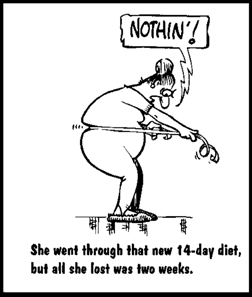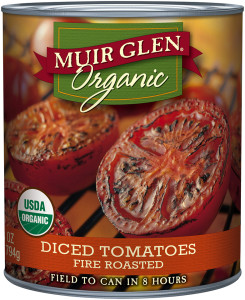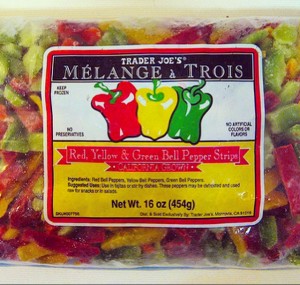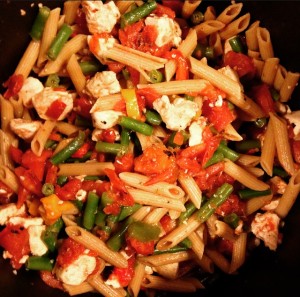For the Love of Food
One thing I hear all too often is, “I want to eat better but I just love food too much” or the other version, “I really love food so I feel like I’m just doomed to be overweight”. I get it. I used to say that one of my main reasons for working out so much was because I loved food.
However, over the last few years, this idea really started to gnaw on me. Why does it have to be an either-or situation?? Either you love food or you eat healthy? About a month ago, I came across a quote that really nailed it on the head for me:
You’d think we love it, but we don’t. The exact opposite is true. Imagine the difference between a healthy person who savors a slice of cake after a good meal, and a morbidly obese over-eater who scarfs down three Cinabons while sitting in the food court at the mall. You might have the impression that the latter “loves food” more, but this is not the case. To them, food is a compulsion. A drug. A prison. They don’t love it. They just consume it. It is the healthy person, the one who exercises and eats vegetables with most meals, who can really find joy in a good dessert. They can love it because they are not a slave to it.
~Matt Walsh
This quote really spoke to me because I think a lot of us could really benefit from changing the way we think about food. You can still love food….after all, it is what sustains your body and life. God could have done it very differently, but He gave each food a different taste and texture and then he gave us the tastebuds to enjoy those different tastes. The breaking of bread and the mutual enjoyment of food is a big part of community and connection. It should be loved.
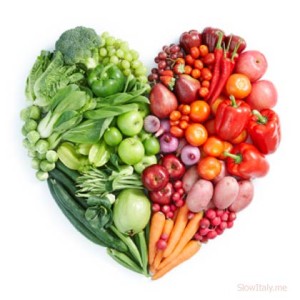
BUT, with food being such an integral part of life, how much more enjoyable would life be if we didn’t feel so controlled by it??
So I started thinking about the instances where we think we’re loving and enjoying food when we’re really only serving to worsen our relationship with it. Three things came to mind and it’s no surprise that they all have to do with our mentality towards food. Check them out….
1) Emotional Eating
One of the first things that came to mind is “eating our feelings”. This always seems like a good idea in the moment, but afterwards only leaves us feeling worse than before. So for starters, it’s helpful if we have a way to decipher if what we’re feeling is physical or emotional hunger.
- Physical hunger builds gradually; emotional hunger strikes suddenly
- Physical hunger is felt below the neck (i.e. growling stomach); emotional hunger is felt above the neck (craving a specific taste in your mouth)
- Physical hunger feels mildly uncomfortable and will usually subside for a little while with a glass of water; emotional hunger feels urgent and uncontrollable
- Physical hunger goes away when full; emotional hunger persists despite fullness
- After eating, physical hunger leads to feelings of satisfaction; emotional hunger leads to feelings of guilt and shame
If it is emotional hunger, then experiment with new ways to cope that can actually help you. Are you stressed out? Take 30 minutes to get outside and walk or take a nap! Are you depressed? Call a friend or spend some time in meditation/prayer. Is it late at night and you just like to relax and indulge a little? Treat yourself to a good book, a bubble bath, maybe some time with your spouse 😉 or an extra hour of sleep!
These are just some suggestions of course. Perhaps the best thing to do is take a few minutes to sit down and make your own list that you can refer to in those times. (Maybe even copy this list of physical vs. emotional hunger to the top of the page.) Just like in relationships, when you look to them to fulfill something it has no capacity to fill, you only end up feeling more empty. Whatever you’re dealing with, food doesn’t have the answer.
2) Too Much Restriction
The reason you can’t control your eating when you are around sweets and treats is because you have put them up on a pedestal, and then deprived yourself to the point that THEY control YOU. ~ Jill Coleman
When you think about it, the ice cream in your freezer, the dessert or bread at a restaurant, holiday candy, these things will always be readily available! (Seriously, when could you not hop in your car and be enjoying any of these within the hour??) When we restrict ourselves and spend a crap-ton of energy just trying to avoid certain foods, we end up mentally putting these foods up on a pedestal. It’s no wonder then that when our next “cheat meal” comes around it looks like a feeding scene from shark week. 😀
The other possibility is the abundance mindset: I can have this whenever. Do I really have to have some right now or will I feel better (or be happier with my progress) if I skip it this time?
I’m not saying that there’s no place for restriction or discipline, but be careful how much you restrict. Food will always be there and the pleasure of eating is fleeting. Take care to not let your mind put it up on a pedestal and give it power it doesn’t have.
3) Mindset
One huge shift for me was experiencing how much better I felt when I fed my body well. That’s when I really started to look at healthy eating as rewarding.
If you think of healthy eating as a horrible and painful process that you don’t really want to do or if you elevate the unhealthy stuff as more enjoyable and better tasting, then the process is going to be hard and painful.
Guess what. There really is such a thing as really tasty healthy food! Healthy habits are totally worth it when you begin to experience the difference it makes in both your physical and emotional health. Shifting your mindset and reminding yourself daily that healthy eating is rewarding and worth the effort, even if you’re not quite convinced yet, can really help your process.

I still get super excited about eating good food 🙂
I’ve been both examples in Matt’s quote (minus the morbidly-obese part). It feels awful to feel so controlled by food. It’s also true that dessert really does taste better when you don’t have it all the time. 😉 If I’m being honest, I don’t completely have this mastered yet. I still have times where I emotionally eat or just over eat, but I’ve come a looong way. These are some of the practices that I know can help because I’ve used them myself!
You just have to be willing to put in the work, get back up (again and again and again 😉 ), and keep forging ahead.
What about you??? What helps nurture your relationship with food? Share your experiences over here on my facebook page!




